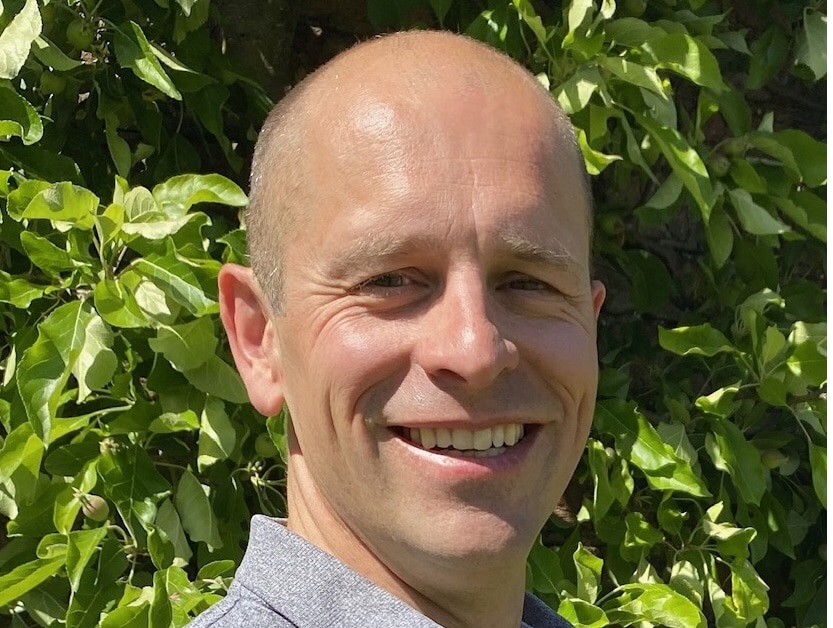In our latest CEO interview, we talk to Andrew Russell the new CEO of Robo-advisor Wealthify.
Andrew has recently taken over from the original co-founder and CEO Richard Theo, who stepped down after the acquisition of the robo-advisor by Aviva. I discuss with Andrew the challenges of switching savers to investors, helping people understand the importance of compounding and what he hopes to achieve whilst running Wealthify.
To see what others think of Wealthify you can read Weathify reviews here.
Andy, thanks for joining us. Why did you take the role of CEO at Wealthify?
Thank you, Richard. When Aviva completed the purchase of Wealthify in June, the CEO position became available and I was asked to apply for the role by the team at Aviva where I’ve worked for the last 12 years.
I’ve spent my entire working life in retail banking and retail investments, and have worked in various leadership roles within Aviva for the last 12 years as well. From a career perspective, it was a natural fit and an exciting opportunity. I’m passionate about digital innovation and helping people and businesses grow, so coming into Wealthify sounded like a really good fit.
I’ve not been disappointed at all, it’s been great fun so far. We had a good transition from Richard Theo, the founder and original CEO, to myself during the transaction. The team have been very welcoming and there’s a very common purpose that you feel throughout the business. There’s a lot of passion behind what they do as a team. We’re a small team who are very committed to helping people and enabling them to grow their money as well. That really comes through from when you meet the team, and it was great to walk into that. My job is to protect that culture and help it flourish.
How big is the Wealthify team now and where are you based?
There are 40 now, 35 when I joined a few months ago, so we’ve grown already. Our Head Office is in Cardiff but we’ve got a smattering of people dotted about. We’ve got someone in Edinburgh, a couple in Bristol, but the vast majority are Cardiff-based.
What do you hope to accomplish now that you’ve taken over the leadership of Wealthify?
Ultimately, we’re looking to help and inspire anyone to build their future wealth. The word “anyone” is particularly important to our purpose. We’re a really inclusive bunch and genuinely want to help as many people as we can. Whether that be new investors looking to build their confidence, or savers that could be better served by moving some of their long-term savings into investments.
We’ve been around since 2016 – we’ve built a really cool customer interface and we’ve got a really strong culture within the organisation with the drive to help people, so we get a lot of positive customer feedback as a result. With that kind of product offering and really good people-orientated culture, our purpose-driven strategy is aiming to help as many people as we can to build their future wealth.
Has it been a particular challenge for Wealthify to convert people to taking a bit more risk and invest instead of saving?
I think that’s not just a challenge for Wealthify, but for the industry as a whole. It’s very difficult for people to take that first step into investing. It’s an unknown, it’s a new concept that they’ve got to get their head around, but there’s a big societal need for it. Currently, with such low interest rates on savings products, people are walking past their own money really as they are missing out on that opportunity for greater fund growth.
I don’t think it’s just a Wealthify thing; the investment industry in general needs to do more to educate and help people take that step out of saving accounts into investment.
Why should someone who’s looking to invest online in a pre-made online risk-based portfolio go with Wealthify, rather than one of your competitors?
It is a competitive marketplace, so it’s a very good question, and it’s growing so there’s more people to compete for.
I think the niche that we’ve carved for ourselves as Wealthify has been accessibility and affordability. We have a very smooth, really easy to use customer journey, via app or via web.
Five times more people use our app than the website; we see a lot of growth in mobile interaction for us as a company, and we get a lot of strong feedback from how smooth our customer journey is as a result.
We’ve got a really strong culture within our tech development team. We can get feedback from our customers into our frontline dev team, and onto our app in no time at all, getting that direct flow through.
Affordability is an integral point, particularly given we’ve just talked about moving savers to investors. You can access our portfolios from as little as £1; lots of our peers don’t do that. We also have some of the lowest fees in the market, particularly for customers with smaller pots, again this is so we can help as many people as we can move from saving to investing.
Having walked into the company only a few months ago, that culture within the team of wanting to help, really comes through in our customer feedback as well. We get a lot of strong customer advocacy around our level of automation and how easy we are to do business with, but then when people do make contact with us, we hear how easy those human interactions are and how well we look after them. As a result, our Trustpilot score is industry-leading due to our people-focused culture.
Those three things, the affordability, accessibility and advocacy have really underpinned our success so far, and we’re looking to utilise them a lot more to continue our growth in the future.
I’m a massive fan of Starling Bank and other challenger banks like Monzo. You can open an account now in less than five minutes, and because of the adoption of open banking, they can tell you that they’ve received the money quicker than old school banks can tell you that the money’s left their account. That’s the new pace that we’re operating in, and the investment services that we provide need to be as good, if not better, than what the challenger banks have done.
That’s kind of the culture we have. That’s what we’re trying to create as a company. I think we’ve had a really good start to establish ourselves in that vein, and we want to do lots more to keep pushing that forwards.
Are you seeing a big shift in ESG and sustainable investments?
Yes, in short. In our Original investment portfolio we have a broad range of customers, with an average age in the low 30s, so we attract quite a lot of millennials. But we’re also seeing a big push towards our Ethical portfolios, with £1 out of every £4 of new AUM flowing into an Ethical investment plan. Our ethical fund is growing a lot more than our original funds currently.
I think that’s because people expect more from their investment company. They want to know how their money is invested and they want to make sure that good is being done in the world with their investments.
There’s a surprising array of views on ethical investments as well. Some people just want to pass a bar and want to know that their money is used for good. Then there’s others that want more visibility of where their money’s invested to make sure that there is absolutely no chance that their money can be used for anything other than good.
I love the types of questions we get here, such as, why are you investing in US government bonds? Are they truly ethical investments or not? I think that’s a great question to be asking the investment universe, and it’s not only helping to ensure that investment money is being used for good and helping the world, but it’s also then helping people change their investment thought process as well.
What we tend to see from our ethical customers is once they’ve passed the minimum returns bar, they’re less interested in the risk-return reward and more interested in how ethical their plan really is. That is something I think we can explore more going forward.
What’s the one bit of advice you could give to people to make them better investors?
I think it’s really important that everyone understands how quickly and how surprisingly money grows, through the power of compounding.
Whether you’re getting a low return from your traditional savings accounts, such as your 0.01% interest rates, or whether you have a high annual management charge on your current investments account, you need to know these things can make a significant difference in how much your funds can grow over time.
Those little amounts really add up over time and make a lot of difference for people, particularly those who don’t have much money to invest in the first place.
It’s important you don’t walk past that fact that this money’s yours. You wouldn’t walk past your money if you dropped it on the street. You wouldn’t go into a supermarket or clothes shopping and buy the exact same clothes for three times as much. People sometimes do that when investing because it feels somehow more intangible, it’s somehow therefore easier to accept a higher rate.
But it’s not, it’s your money; you should look at how quickly that amount adds up. Understand the power of compounding and use it for your benefit.
Why do you think people haven’t quite grasped the concept of compounding yet?
I think we’re making good headways into it and the onset of robo-advisors is a good sign of that, and the industry and FCA are helping create scenarios where it’s easier for people to invest.
But I also think we’ve relied too much historically on the easy answer that we just need to educate people. There are lots of educated people out there, financially savvy people, that still don’t make the decision to move from savings to investments when it might be right for them. It’s a bigger thing than just education.
Accessibility is a big part of that. We need to make that switch as easy as possible to encourage people to move from savings to investments. Simple things, like offering ethical investments where you’re actually doing good can make a big difference. Wherever we can engage people in investments over savings, wherever we can educate, wherever we can make it accessible, all that needs to come together with the new technology that we’re developing as an industry to make it as smooth a transition as possible.
When it’s easy and when we can start making clearer the power of compounding and the money that people are walking past, I think it’ll start having a ripple effect.
As more people start talking about investing and power of compounding, it’ll start growing virally, encouraging more people to move from savings to investments. There’ll be a shift. And that’s when we need to make sure we’ve got the products there to help people to invest effectively.
Do you think people understand that there are risks involved in investing as well as the rewards?
I think that’s also probably a sensible reason why some people aren’t moving from savings to investments, because they correctly see risk, and then choose to say no, that’s not for me.
However, it is not a yes/no decision for risk, but more of a risk-return appetite, and I think that’s a wider discussion we need to have. We all take risks every day. You cross the road, you’re taking risks. It’s just that road crossing is a known risk, and I think getting people to accept risk exists in a savings or investment portfolio is probably step one, and then we work through whereabouts do you want to land on that risk return spectrum.
Do you think they should teach financial management and investing more in school?
Completely. And if it doesn’t get introduced in schools, then we should look at how we can introduce it into things like gaming. You get all these awesome games now like Roblox and Minecraft that are ultimately about house building and construction, encouraging kids to develop things like solving logic problems.
You can build some cool gamification to educate around the risk-return trade off, getting people used to making those types of decisions. There’s lots of good we can do, leveraging our digital advancements and capabilities. We just haven’t linked up enough yet as an industry, to help make a difference.
Another big thing is that we don’t talk about wealth enough as a nation, and it’s almost become a dirty word. Like it’s just reserved for rich people.
Looking after the health of your wealth should be important to everyone. Getting more people looking at how we can change our mind-sets to become more ‘wealthy’ in the future is very important. It’s not a dirty word; it’s not only for rich people. It’s how we’re going to be able to live our lives in the future, and I think just talking about it more will help. And the sooner we start talking about it, then we’ll start exploring as a society how we can actually do better in the future.
Excellent. Well thank you very much for your time. Are there any exciting updates that we’re going to see in the near future for Wealthify? Anything we should be keeping an eye out for?
Yes, lots. The main focus during the transition of ownership has been ensuring a smooth handover, which has all gone really well. Wealthify’s purpose is unchanged – we’re still here to help inspire anyone to build their future wealth by being accessible and affordable. So all those great principles that we’ve been built on are continuing.
And now we’re looking at what more can we do to grow. We’ve got lots of ambition for how big and how quickly we want to grow, and so we’re working through our plans to facilitate that. In particular, we’re focused on helping as many savers to become investors as we can and building the confidence of newer investors.
In the near term, we’ll be perfecting our current product sets and we’re currently working on open banking. We recognise that for quite a cool digital app that’s very instant, our payments are taking too long, so open banking will improve things like that.
We want to make sure that our customer journey is as smooth and instant as possible, and then we can then start scaling on that seamless offering, opening us up to wider opportunities in the future.
Andrew Russell is CEO of robo-advisor Wealthify

Richard is the founder of the Good Money Guide (formerly Good Broker Guide), one of the original investment comparison sites established in 2015. With a career spanning two decades as a broker, he brings extensive expertise and knowledge to the financial landscape.
Having worked as a broker at Investors Intelligence and a multi-asset derivatives broker at MF Global (Man Financial), Richard has acquired substantial experience in the industry. His career began as a private client stockbroker at Walker Crips and Phillip Securities (now King and Shaxson), following internships on the NYMEX oil trading floor in New York and London IPE in 2001 and 2000.
Richard’s contributions and expertise have been recognized by respected publications such as The Sunday Times, BusinessInsider, Yahoo Finance, BusinessNews.org.uk, Master Investor, Wealth Briefing, iNews, and The FT, among many others.
Under Richard’s leadership, the Good Money Guide has evolved into a valuable destination for comprehensive information and expert guidance, specialising in trading, investment, and currency exchange. His commitment to delivering high-quality insights has solidified the Good Money Guide’s standing as a well-respected resource for both customers and industry colleagues.
You can contact Richard at richard@goodmoneyguide.com



